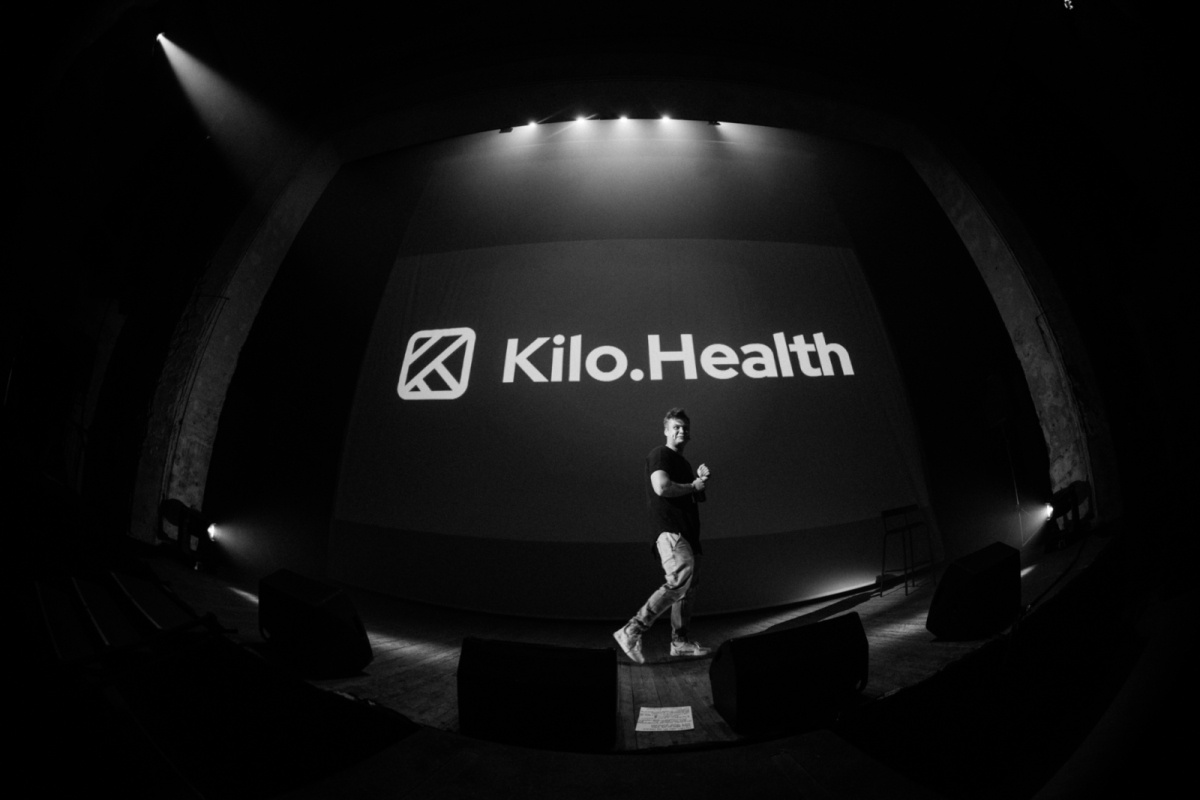VILNIUS, LITHUANIA / ACCESSWIRE / October 4, 2022 / Are all carbs bad? Will eating eggs hurt your heart? Can crunches give you a six-pack? Discover 7 health and wellness clichés you can safely forget.

The internet has made finding health information more convenient than ever before. But can you trust the results?
A 2022 Kilo Grupe survey of 1,004 American adult internet users found that 93% of people had searched for health information online at least once.
People not only seek health information online but also rely on it. According to the same source, 82% of respondents have tried health advice found online.
A 2021 systematic review of 69 studies that explored the prominence of misinformation in various sources online found that in some studies, 87% of the posts reviewed included false claims.
The review analyzed key health misinformation topics, including vaccines, noncommunicable diseases, medical treatments, and eating disorders.
Social media users may unwittingly contribute to the spread of misinformation. Researchers from MIT found that false news is 70% more likely to be retweeted.
Truthful news, meanwhile, rarely reached more than 1,000 people. The researchers noted that the novelty and emotional charge of false news might be responsible for its massive spread.
Some people are more susceptible to health misinformation. The study Who Is Susceptible to Online Health Misinformation? run by the American Psychological Association sheds light on this.
The study found that people who believe misinformation about vaccines are more likely to believe misinformation about cancer treatments and vice versa.
Kilo Grupe experts agree that online misinformation is a major problem today. Some health myths are so popular that it's easy to assume they are true.
Let's take a closer look at 7 health and wellness clichés you shouldn't take for granted. Even if you've heard them repeated over and over again.
#1 Eating carbs affects your health
This myth springs from the fact that not all carbs are equal. After all, both vegetables and McDonald's contain carbs.
Refined carbs include foods made with white flour, white bread, white rice, pastries, sodas, and processed grains with added sugar. Refined carbs have been associated with obesity, diabetes, and high blood pressure.
But unprocessed high-quality carbs are your body's main source of energy. Healthy carbs include whole grains, vegetables, fruits, and beans. Usually, the less processed these foods are, the healthier the carbs.
They fuel all your major organs. Skipping on carbs temporarily may help you lose weight. But the side effects that follow after, like nutrient deficiency, weakness, and headaches, can be debilitating.
The Dietary Guidelines for Americans currently recommend that an average adult eats 225-325g of carbs daily (45-65% of total daily calories). However, remember that the guidelines get constant updates, and suggestions could differ. Your lifestyle and medical conditions (e.g., diabetes) should be considered when calculating the individual daily carb count.
#2 Eggs are bad for your heart
In recent years, eggs have been at the center of a health scare because of their cholesterol content. One large egg can pack around 180mg of cholesterol.
Fry another one with it, and you may surpass the maximum daily recommended dietary cholesterol limit of 300mg.
However, the cholesterol in eggs has less of an impact on your blood cholesterol than saturated fat in general. Eggs are low in saturated fat. If you have high cholesterol, Heart UK recommends limiting eating eggs to 3-4 a week.
Eggs have notable health benefits. Studies suggest they can prevent stroke and age-related macular degeneration (AMD). AMD is a leading cause of blindness worldwide. Eggs also have B vitamins, vitamin D, and protein.
Tip: All the cholesterol in the egg is in the yolk. You can eat the egg white for the protein and other nutrients it contains.
#3 Crunches will give you a six-pack
Doing a hundred crunches or sit-ups a day won't get you a six-pack. Crunches don't engage your lower abs. Nor do they strengthen your entire core.
A 2011 study compared participants who did crunches for 6 weeks with those who didn't. The former had nothing to show for it apart from better muscular endurance.
For a six-pack, you need to strengthen your entire core. In addition to the abs, your core comprises your hips, glutes, and lower back.
That's why compound exercises like squats, deadlifts, and planks work better. Reverse crunches also work more for your abs than standard crunches.
Diet is crucial for a six-pack. Your abs won't show through subcutaneous fat. Watch your macronutrient balance, eat healthy foods, and make sure to combine cardio and weight training exercises while working out.
#4 You should take 10,000 steps a day
Even though any type of movement is beneficial, there's no science to back the claim that 10,000 steps a day will surely keep you healthy. In fact, it started out as a marketing ploy.
After the 1964 Tokyo Olympics, the Japanese company Yamasa launched the first wearable step-counter, Manpo-Kei. In translation, Manpo-Kei means a 10,000-step meter.
Walking is one of the healthiest activities you can do. But forcing yourself to walk 10,000 steps a day can be demotivating and not right for everyone. It can even affect your health if you go from sedentary to 10K per day too quickly. Make sure to start slow and set your goals while considering your current fitness level.
When you are ready, try to walk briskly. The end goal is to put in 150 minutes of moderate-intensity exercise a week.
#5 The traditional food pyramid is right
Do most of your meals include at least a few slices of bread? The traditional food pyramid places bread, rice, pasta, and other carbs at the base. It recommends a total of 6-11 servings of these a day.
These foods are rich in carbs and highly processed. And as we've seen, refined carbs are not the healthiest things to eat.
The USDA launched a new food pyramid in 2005. While this one focuses on healthier carbs, it can still add too many grains and dairy products to your diet. Even more worrying, it may make you eat more fat than is healthy.
So, what's the alternative? Whole grains, vegetables, fruits, and healthy oils can form the basis of a healthy plate. Then come fish, poultry, and eggs alongside nuts, seeds, and beans.
You also want to limit dairy to 1-2 servings a day. And eat red meat, butter, refined grains, sugary drinks, and salt sparingly.
#6 Gluten is bad, and you should avoid it
Gluten is a large and elastic protein found in wheat, rye, and a few other grains. There is nothing inherently unhealthy about it. But people with celiac disease, an autoimmune disorder, cannot tolerate gluten.
Eating gluten with celiac disease triggers an immune response that can damage the small intestine. Some people may be sensitive to gluten without having celiac disease. Symptoms include abdominal discomfort, gas, foggy mind, and diarrhea.
Gluten doesn't have any essential nutrients. But even so, skipping whole grains just because they have gluten isn't necessarily wise.
Skipping gluten could lead to a lower intake of fiber, which is important for gut health. Also, a study found that healthy people who ate gluten were less likely to get type 2 diabetes.
So don't say no to whole grains just because they have gluten. If you're concerned about your gluten intolerance, you should get tested.
#7 You should drink 8 glasses of water a day
There's no scientific evidence that drinking 8 glasses of water per day is good for you. You may need to drink more or less water depending on your activity level, weight, and outside temperature.
If you work out a lot, you will need way more water than 8 glasses per day. If you live in a hot climate - drink up because you sweat way more than people living in a colder environment.
It's more important to pay attention to your body's needs. Notice the color of your urine. Normal urine is pale yellow. If the color is darker, you may not be properly hydrated.
Lightly colored urine means you may be too hydrated. Passing clear urine frequently can be a sign that you're taking the 8 glasses of water a day myth too seriously.
The wrap-up

UAB Kilo Grupe experts agree that health and wellness clichés can harm health. This is especially true today when social media spreads them at an alarming pace. But just because a thousand people shared it doesn't make it true.
Kilo Grupe promotes health and wellness by developing products informed by science.
From diabetes management programs to personalized running training plans, UAB Kilo Grupe harnesses the latest science to bring you proven strategies for managing diabetes, weight loss, getting fit, and more.
Read more about UAB Kilo Grupe on TechTimes, JPost.com and DailyIowan.
Juste Petraviciute
press@kilo.health
+37060167331
SOURCE: Kilo Grupe, UAB
View source version on accesswire.com:
https://www.accesswire.com/718748/UAB-Kilo-Grupe-Kilo-Health-Shares-7-Health-and-Wellness-Clichs-That-Are-Actually-False




